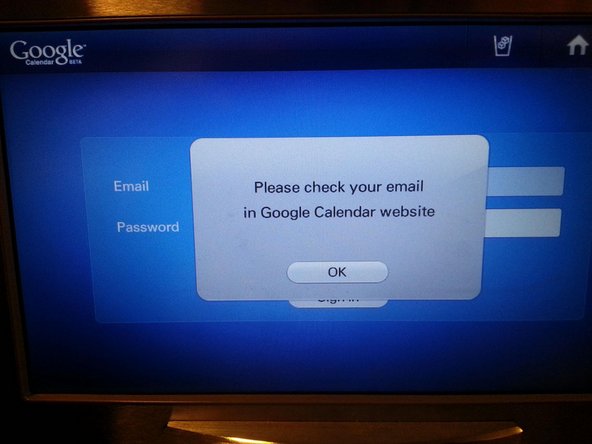For over a year, owners of a Samsung smart fridge have been unable to use their fridge’s pre-installed Google Calendar app, proving what we all suspected: the Internet of Things can quickly become an Internet of Broken Things.
A digital calendar on your fridge seems useful—that way, the whole family knows when Susie’s oboe lesson is cancelled or the Joneses are coming over for dinner. But anything that’s Internet connected has to get regular updates, or it will break. Apparently, the Samsung fridge depends on an old version of the Google API, and Samsung hasn’t yet pushed out necessary updates to all fridges. They acknowledged the issue in November last year and began to send updates to some fridges in February, but many people are still waiting for a fix. (Silver lining? While the calendar app is broken, it can’t leak your Google login information to hackers.)

The Google Calendar break is just the most egregious of a laundry list of software problems with this fridge: users report difficulty with everything from Twitter to the photo reader. Worse, after a power outage, it reboots into demo mode—with the cooling compressor off. Spoiled milk, ahoy.
If you think a smart fridge is a dumb idea, you’re not alone. When people started buzzing about the Internet of Things (4.9 billion connected devices and counting), lots of experts sent up warning flares. “If you think error messages and applications crashes are a problem now, just wait until the web is embedded in everything from your car to your sneakers,” Wired reporter Klint Finley cautioned in 2014.
We’ve worried in the past about how embedded electronics open up your teddy bears and cars to copyright restrictions, as well as about how they can shorten the lifespan of devices. For refrigerators, a shorter lifespan is a particularly big deal—appliances actually make up about 60% of global e-waste.
Refrigerators usually last about 14 years, a lifespan that has held pretty constant in the last few decades. But smart fridges threaten to shorten that lifespan significantly. In the software world, 14 years is practically an eternity. Most companies won’t support software that old, so the fate of the Samsung smart fridge Google Calendar is all but inevitable. And when people can only fix the out-of-date electronics on the front of their fridge by replacing the whole kit and caboodle, they’ll upgrade. This wastes all the materials and energy that went into manufacturing. Sad news for anyone who cares about the environment.
So, before you go out and educate all your appliances, consider how smart you really need them to be—and how smart they’ll be when their software is out of date next year.
Header image via Kars Alfrink on Flickr.




3 Comments
The Samsung smart fridge is not that ‘smart’ and have to point out that the software implementation is terrible. One wonders if the engineers @ Samsung ever truly road-tested this fridge before it went to market as there are so many faults with it.
I would not be happy to recommend this fridge to anyone as the planning and implementation of the product has been ill-conceived.
Greg Nelson - Reply
Somehow this guy thinks that google calendar breaking is the most egregious problem and not the cooling compressor turning off...or I'm just being rage-baited into commenting
Hung Diep - Reply
14 years?? My Whirlpool fridge is 30 years old and shows no sign of slowing down...and my basement fridge is even older.
Don't accept these crappy new appliances, like front-loading washers that can't clean clothes or stoves that turn off when they feel like it, or refrigerators that don't properly restart after a power outage. I may end up buying all my appliances from thrift stores for the rest of my life.
Albert Einstein - Reply